Best SAT Math Tutors Near Me
If you are struggling with SAT math topics, such as geometry, algebra, equations, systems of linear equations, data analysis, and much more, it may be best to seek a math tutor. To find a math tutor nearby, students should use search engines that allow them to place their locations and choose the type of tutoring they wish to have.
A site like Thumbtack allows individual students and parents to find private tutors that suit their locations and needs, including preparing for SAT math topics and the SAT math test, or the SAT test, in general. Meanwhile, the site will enable users to adjust their grade levels from kindergarten to college. Therefore, the online or in-person tutor understands what they need to do to improve student learning.
The SAT math test and SAT math topics can cause worry and stress in students. Luckily, many tutors focus on SAT math topics, such as linear equations, data analysis, linear and exponential growth, problem-solving, quadratic equations, advanced math questions, and many more math concepts.
How a Math Tutor Can Help
Depending on the education level, student progress can often feel stagnant and stressful, especially when it comes to hard-to-understand concepts like linear equations, data analysis, linear and exponential growth, and many more.
Advanced math is a field that can be incredibly difficult to grasp, yet it may be a field required by a college board or part of a college admissions process to be chosen to attend that college. Tutors can help with additional topics in math, such as SAT math prep, and offer more info needed to do well during the SATs, such as learning to write equations, work through concepts, use data to solve problems, and much more.
The SATs can be a stressful time in a student’s life. Worrying about SAT math questions and topics in the SAT math topics can make a student’s life much more difficult, especially if math is not their strongest topic.
Those who want to feel independent may feel like they cannot ask for help. However, independence can hinder a student’s valuable learning experience and understanding. Math tutors ensure individuals will better understand math concepts and additional topics. These include word problems, prime numbers, reference information, linear and nonlinear equations, practice problems, and more.
When people learn and understand the content being taught, they gain confidence. This confidence is valuable because self-confidence is vital in enabling students to recover after going through a setback. Confidence allows individuals to overcome those situations stronger, whether it be an educational or a personal setback. This is why a student may desire to find a tutor who may specialize in additional topics in math rather than the basics. This can help them prepare for the SAT math topics and even show their college board how they value their education.
It is important to remember that tutors are a great way to challenge individuals just enough to sharpen their skills without overwhelming them with repetitive work. They can teach individually, whether college attendees or in high school, in one-on-one sessions that contribute to the high-stress situations that are group educational learning.
How a Math Tutor Works
Math tutoring is different from a teacher and classroom environment in various ways. Math tutors can help a student one-on-one, whereas a teacher must focus on an entire classroom. Kids and parents can ask the tutors questions about how they prefer teaching and what they specialize in.
Tutoring typically lasts an hour to an hour and a half, whereas classes at university can last up to three hours or more per sitting. This can give a student’s mind time to wander, while a tutor can help refocus and redirect back to the topic prep. This can offer an advantage to a student who may be prone to having trouble focusing.
One of the main points a tutor can offer a student or individual is the physical presence of support and encouragement. Face-to-face conversations or even video-chat communications can help aid the individual’s concentration and focus on a particular topic.
Tutors, especially for the SAT math test, can help individuals study SAT math topics or sections while assisting them in putting their best effort forward in preparation. The SAT math sections are one of the hardest of the SATs, so a tutor specializing in the SAT math topics and problem-solving may be the best bet.
Benefits of Working With a Math Tutor

Working with a math tutor is very beneficial for struggling individuals and those who are high achievers. Tutors are not just for those struggling in a specific topic or class; they can help those who wish to do their best or learn more from an issue, such as advanced math.
Read on for some others ways a math tutor can help individuals in other ways than preparing them for the SAT math test.
Improves academic performance
A tutor is a great way to challenge individuals just enough to sharpen their skills without overwhelming them with work that’s too difficult or boring them with work that’s too easy. Instead of only looking at a test booklet, a proper math tutor will help people solve problems and data.
Boosts self-esteem
When students learn and understand the content being taught, they gain confidence. This confidence is valuable not just in the classroom and around SAT time but will also filter into other aspects of their lives.
This confidence gives individuals the encouragement they need to take practice tests, look at complex numbers, and look at linear functions without getting stressed.
Caters to the individual needs of the student
The one-on-one sessions are designed to meet the specific needs of that individual student instead of an entire classroom.
It offers a different perspective on problem-solving
People learn in many different ways depending on the style of teaching. A tutor can help a child learn in a way that is comfortable to them but also shows them other ways to approach problem-solving and thinking outside of their personal preference.
Encourages communication
Individuals must learn to communicate their needs and ask questions when working with a tutor. This helps them build a different type of relationship with their parents, friends, and teachers.
Considering these are only a few of the many benefits of having a tutor, the positives of receiving academic assistance from someone with tutor skills far outweigh preconceived negatives.
How Much Does a Math Tutor Cost?
Math Tutors average around $33-$55 per hour. This means that Math Tutors cost significantly more than the average tutors of other locations because the average private tutor cost in the whole United States is $25.
How to Choose the Best Math Tutor
When engaging with a math tutor, there are a few critical questions that a student or parent should want to have answered before choosing a math tutor. The main question should be what kind of math the tutor specializes in, whether advanced math or primary education math, and what type of math the student needs help in the most.
Another thing to consider is the tutor’s education. Typically, math tutors have a Bachelor’s degree in math or a particular field of math, or even a specific area of math, such as data analysis, complex numbers, linear or nonlinear expressions or equations, algebraic expressions, and polynomial expressions, and much more.
Studies have shown that a tutor’s subject-matter expertise benefits the learning efforts of those who need extra help. If you can find a tutor with a master’s or even a Ph.D. degree in math, they are the type of tutors that will help you solve advanced math questions, quadratic equations, arithmetic word problems, etc.
However, this does not mean the only important aspect of a tutor is their education level or the number of degrees they have. In some cases, a tutor with no degree but with several years of real-world experience can provide expert, trustworthy help that can help aid with student success.
What Skills/Topics Are Offered by a Math Tutor?
Our database offers math skills and opportunities for those in multiple languages like English and Spanish. The math courses that we offer tutoring include economics, SAT prep, and much more.
Some Math tutors will offer lower hourly rates while others may not, depending on their teaching and achievement. Some are even available for help with SAT prep and test day prep regardless of the student’s age.
Frequently Asked Questions About Math Tutors
Here are some questions typically asked of any mathematics tutor or anyone interested in obtaining a tutor’s services. Below are concise answers to give some clarity to these questions.
Do I have to work with a Math Tutor in my area?
If you are interested in online tutoring, then there is no need for the tutor to be in your area. Online tutoring services allow individuals to get tutoring from all types of people worldwide, not just within the United States.
Suppose you attend colleges such as Fordham University, Lehman College, College of Mount Saint Vincent, Bronx Community College, or any other institution in or outside the Bronx. In that case, academic help is available to further your education.
What does a Math tutor do?
Math tutors follow much of the same standards and schedules as other tutors. They are tied explicitly to mathematics and have a penchant for focusing on test prep and repetitive assignments.
Are Math tutors worth it?
Tutors cost a fair bit more than the average tutor, but they are worth it because of their educational benefits. By making classes easier and improving grades or preparing for Standardized test-taking, tutors help improve the ability to show academic knowledge in mathematics.
Are Online Math Tutors Available?
Online tutors are available for multiple tutoring sites. Many of them specialize in a specific field of mathematics, such as geometry, algebra, phonics, and more.
How is online tutoring different from in-person tutoring?
Online tutoring doesn’t create the interpersonal relationships that in-person tutoring does. However, in-person tutoring is often more expensive than online tutoring, so online tutoring has a cost-benefit. A high school student may benefit more from in-person. In contrast, a university student in a mathematics major may benefit more from an online session with their busy schedule and those preparing sessions around work, socialization, and classes.
Local tutors in the mathematics field are available for private tutoring and are also available for graduate school individuals.

Enjoy All The Benefits
You don’t pay your first hour unless you find it a good fit.
Only pay for the time you need.
No subscriptions or upfront payments.
Find Tutors Near You College applications are often confusing and stressful, but you don’t have to worry. Let this be your guide to help you understand what subjects are on the ACT, how it is scored, and a few other crucial tips to success. It doesn’t have to be overwhelming once you understand the basics of each of the tests.
College applications are often confusing and stressful, but you don’t have to worry. Let this be your guide to help you understand what subjects are on the ACT, how it is scored, and a few other crucial tips to success. It doesn’t have to be overwhelming once you understand the basics of each of the tests.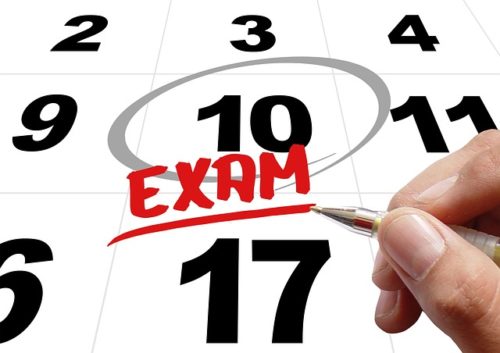 In total the ACT takes 2 hours and 55 minutes, or 3 hours and 25 minutes if you sit the writing section of the test as well this time around.
In total the ACT takes 2 hours and 55 minutes, or 3 hours and 25 minutes if you sit the writing section of the test as well this time around. At first this may seem a little complicated, but it’s actually quite simple. It’s not quite as straightforward as recording how many questions you answered correctly – that would be really simple! But that is the first step.
At first this may seem a little complicated, but it’s actually quite simple. It’s not quite as straightforward as recording how many questions you answered correctly – that would be really simple! But that is the first step.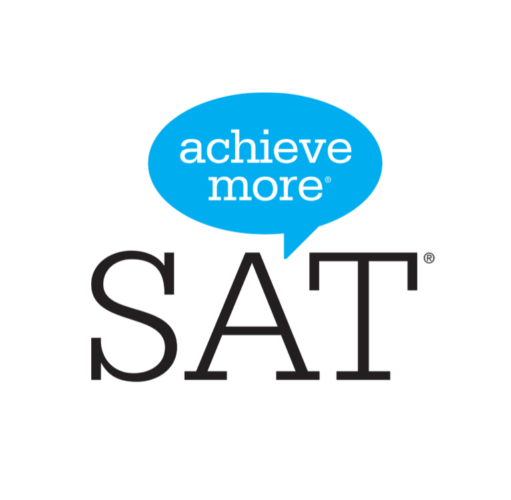 The first step in your preparation is to actually choose your subjects. The SAT subject tests are the only national admissions tests that you get to choose which topics you will take – so it’s wise to select subjects that showcase your strengths. Check in with your guidance counselor and teachers for their advice, but also make sure to consider these three tips as well:
The first step in your preparation is to actually choose your subjects. The SAT subject tests are the only national admissions tests that you get to choose which topics you will take – so it’s wise to select subjects that showcase your strengths. Check in with your guidance counselor and teachers for their advice, but also make sure to consider these three tips as well: Aside from any restrictions due to test availability, you totally have free choice as to when you can sit your SAT subject tests. Naturally, there are many factors to consider, so here are three tips:
Aside from any restrictions due to test availability, you totally have free choice as to when you can sit your SAT subject tests. Naturally, there are many factors to consider, so here are three tips: Every student studies and learns differently, which means there is no ‘one size fits all’ model when it comes to test preparation. However, there are a few general hints and tips that seem to work for just about everybody. Here they are:
Every student studies and learns differently, which means there is no ‘one size fits all’ model when it comes to test preparation. However, there are a few general hints and tips that seem to work for just about everybody. Here they are: This article will clarify what exactly the ASVAB is and how you can achieve success without stress or pressure, even with minimal preparation time.
This article will clarify what exactly the ASVAB is and how you can achieve success without stress or pressure, even with minimal preparation time. Don’t let the slightly unusual structure and complicated scoring system deter you from sitting for the ASVAB. You’d be surprised at how simple and straightforward your preparation can be.
Don’t let the slightly unusual structure and complicated scoring system deter you from sitting for the ASVAB. You’d be surprised at how simple and straightforward your preparation can be. Like most tests, it is in your best interest to allow yourself plenty of preparation time. However, sometimes things don’t work out exactly how you planned and you find yourself with less than a desirable timeframe to work with. Don’t worry, success is still achievable. You’ll just have to tweak your study timetable a little. These ASVAB study tips are designed to help give yourself the best shot with as little as one month study.
Like most tests, it is in your best interest to allow yourself plenty of preparation time. However, sometimes things don’t work out exactly how you planned and you find yourself with less than a desirable timeframe to work with. Don’t worry, success is still achievable. You’ll just have to tweak your study timetable a little. These ASVAB study tips are designed to help give yourself the best shot with as little as one month study. Our ASVAB study tips are the first step in an exciting, new phase of your life! Planning as much time as possible to prep is your best move to getting the results that you are looking for. If time is short, then increase the amount of time you are spending to prepare in what time you have. Move other things to the side (where possible) for now.
Our ASVAB study tips are the first step in an exciting, new phase of your life! Planning as much time as possible to prep is your best move to getting the results that you are looking for. If time is short, then increase the amount of time you are spending to prepare in what time you have. Move other things to the side (where possible) for now. The GRE, or Graduate Record Examinations, offers a gateway to graduate and business schools. While those entering medical school or law school take other tests, those interested in most liberal arts fields, education, and some business program will be looking to take the GRE. And like all the standardized tests, the better your scores, the more options you have available for schools as well as financial aid.
The GRE, or Graduate Record Examinations, offers a gateway to graduate and business schools. While those entering medical school or law school take other tests, those interested in most liberal arts fields, education, and some business program will be looking to take the GRE. And like all the standardized tests, the better your scores, the more options you have available for schools as well as financial aid. But students also lead busy lives and ensuring you have time to focus on the GRE may not always seem possible. So just how long does it take to study for the GRE? The short answer is, however long you have! You can have a GRE study plan 3 months long and some are longer and some are less.
But students also lead busy lives and ensuring you have time to focus on the GRE may not always seem possible. So just how long does it take to study for the GRE? The short answer is, however long you have! You can have a GRE study plan 3 months long and some are longer and some are less. Analytical Writing – this section requires focused responses that articulate complex ideas that are supported with relevant reasons and examples. You must examine claims and evidence, and maintain a concentrated discussion with a high level control of standard written English.
Analytical Writing – this section requires focused responses that articulate complex ideas that are supported with relevant reasons and examples. You must examine claims and evidence, and maintain a concentrated discussion with a high level control of standard written English. Like many other examinations, last minute studying is not useful. The more time you spend preparing for the GRE, the better your results will be. It is recommended that you spend 4-12 weeks developing your skills for the test. This is quite a broad timeframe, the lower end of the scale should be achievable by just about any student that focuses on their preparations. Naturally, spending more time will result in the best outcome possible.
Like many other examinations, last minute studying is not useful. The more time you spend preparing for the GRE, the better your results will be. It is recommended that you spend 4-12 weeks developing your skills for the test. This is quite a broad timeframe, the lower end of the scale should be achievable by just about any student that focuses on their preparations. Naturally, spending more time will result in the best outcome possible.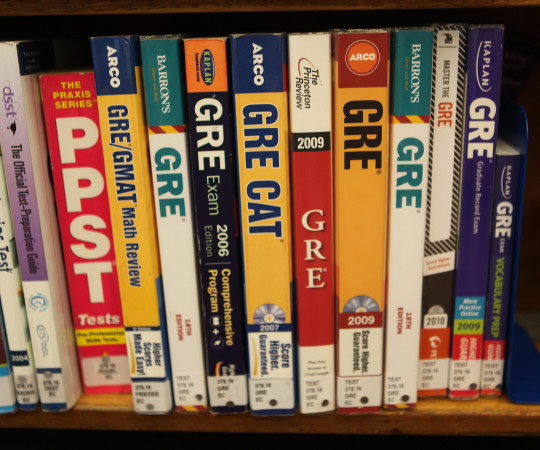 One of the very best ways to study for the GRE on your own is to complete as many practice tests and questions as you possibly can. As already stated, the GRE doesn’t really require you to learn a large amount of new content, but instead it tests your ability to respond to certain types of questioning. The most effective way to learn how to respond to GRE questions is to do them!
One of the very best ways to study for the GRE on your own is to complete as many practice tests and questions as you possibly can. As already stated, the GRE doesn’t really require you to learn a large amount of new content, but instead it tests your ability to respond to certain types of questioning. The most effective way to learn how to respond to GRE questions is to do them!


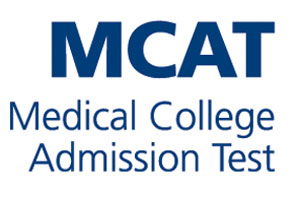

 There are many, many, many MCAT Prep courses available to prospective test takers. Naturally, the people that create these courses would like students to participate and will happily give a ton of reasons and reviews as to why theirs is the best.
There are many, many, many MCAT Prep courses available to prospective test takers. Naturally, the people that create these courses would like students to participate and will happily give a ton of reasons and reviews as to why theirs is the best. MCAT prep courses are costly, there’s no way around that fact. For some, the cost may be just too much to bear, with time and money better spent using free tools (there are plenty of them), spending a small sum on prep books and official practice tests, or enlisting the help of a tutor at a fraction of the cost.
MCAT prep courses are costly, there’s no way around that fact. For some, the cost may be just too much to bear, with time and money better spent using free tools (there are plenty of them), spending a small sum on prep books and official practice tests, or enlisting the help of a tutor at a fraction of the cost. SAT Math Review
SAT Math Review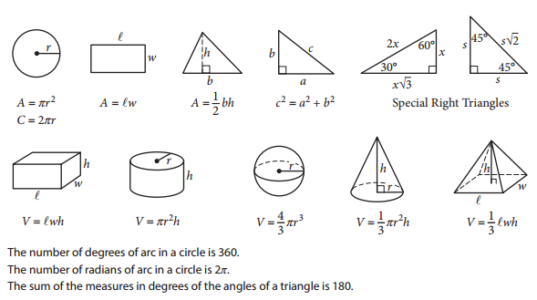 2. Become familiar with the provided formula sheet
2. Become familiar with the provided formula sheet Problem Solving and Data Analysis
Problem Solving and Data Analysis Students who are interested in STEM-based careers will need to pay particular attention to these type of questions. They involve complex equations and functions, and focus on the following areas;
Students who are interested in STEM-based careers will need to pay particular attention to these type of questions. They involve complex equations and functions, and focus on the following areas; List of AP Tests by Subject:
List of AP Tests by Subject: AP Tutoring & How to Study for AP Exams
AP Tutoring & How to Study for AP Exams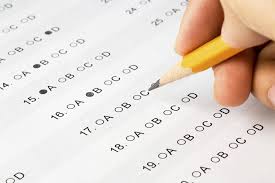 Preparing for AP exams is no small task, in fact, you should start your preparations as early as possible. One to three months ahead of your exams is sufficient time, but this will depend on how busy your usual schedule is and what subjects you are studying, some may require more time than others. Your personal expectations and goals will also play a part in how far in advance you should start your preparations. During this time, your preparation should include the following factors:
Preparing for AP exams is no small task, in fact, you should start your preparations as early as possible. One to three months ahead of your exams is sufficient time, but this will depend on how busy your usual schedule is and what subjects you are studying, some may require more time than others. Your personal expectations and goals will also play a part in how far in advance you should start your preparations. During this time, your preparation should include the following factors: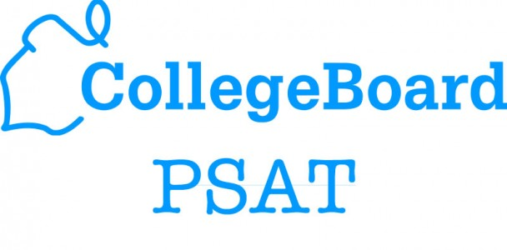
 Now, if you don’t know it by now (and you ought to) then listen carefully…..any test that you are going to take requires preparation. Do I need to repeat that? 😉 Good!
Now, if you don’t know it by now (and you ought to) then listen carefully…..any test that you are going to take requires preparation. Do I need to repeat that? 😉 Good! Unknown answers – Like we said above, guessing is better than blanks! One tip to help, if it’s a total guess, guess the same letter for every question if you really have no idea on any answer. This doesn’t mean if you are down to 2 answers to guess “D” if you think it might be “B” or “A”. But if you have no idea at all, choose one letter and every question that you find yourself in like that, always answer that letter. Statistically it will increase your chances of a few of those guessed answers being right.
Unknown answers – Like we said above, guessing is better than blanks! One tip to help, if it’s a total guess, guess the same letter for every question if you really have no idea on any answer. This doesn’t mean if you are down to 2 answers to guess “D” if you think it might be “B” or “A”. But if you have no idea at all, choose one letter and every question that you find yourself in like that, always answer that letter. Statistically it will increase your chances of a few of those guessed answers being right.